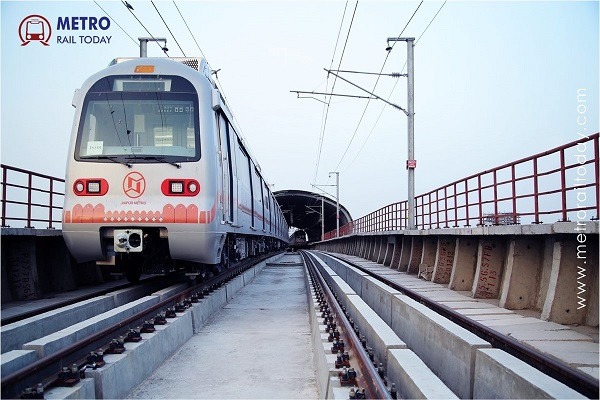 First global civil tender worth ₹1,145 crore launched for Jaipur Metro Phase 2 Project
First global civil tender worth ₹1,145 crore launched for Jaipur Metro Phase 2 Project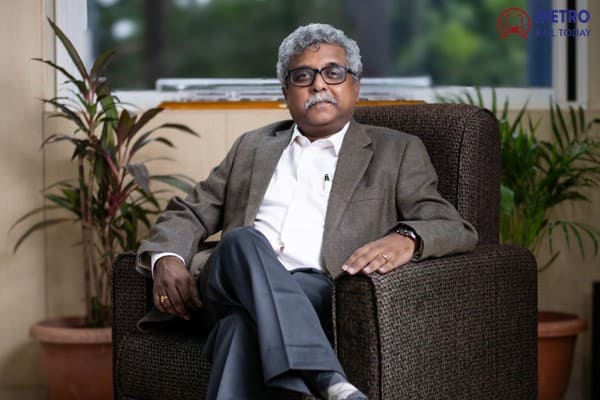 Vande Bharat to Vision 2047 — How ICF is Leading India’s Next Rail Revolution?
Vande Bharat to Vision 2047 — How ICF is Leading India’s Next Rail Revolution?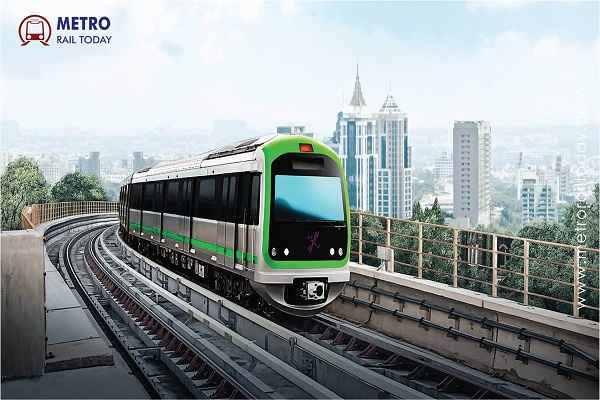 India's first Bengaluru–Hosur Interstate Metro Corridor declared Technically Infeasible
India's first Bengaluru–Hosur Interstate Metro Corridor declared Technically Infeasible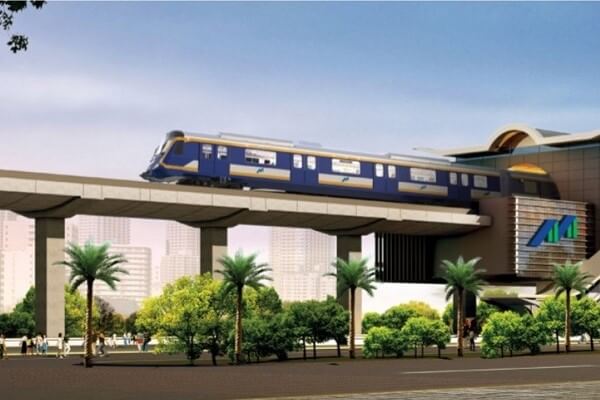 MMRDA awards ₹129.63 crore contract for Multimodal Integration on Mumbai Metro Lines 4 & 4A
MMRDA awards ₹129.63 crore contract for Multimodal Integration on Mumbai Metro Lines 4 & 4A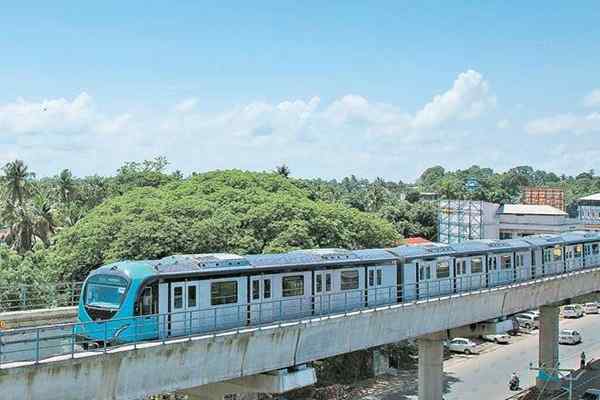 First U-Girder installed on JLN Stadium–Infopark Corridor of Kochi Metro Phase 2
First U-Girder installed on JLN Stadium–Infopark Corridor of Kochi Metro Phase 2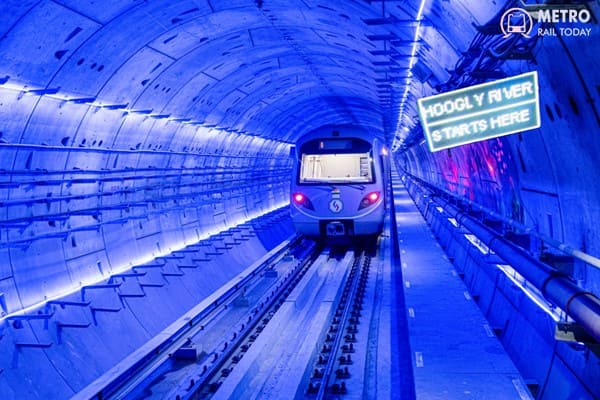 Kolkata Metro Marks 41 Years of Service to the City of Joy
Kolkata Metro Marks 41 Years of Service to the City of Joy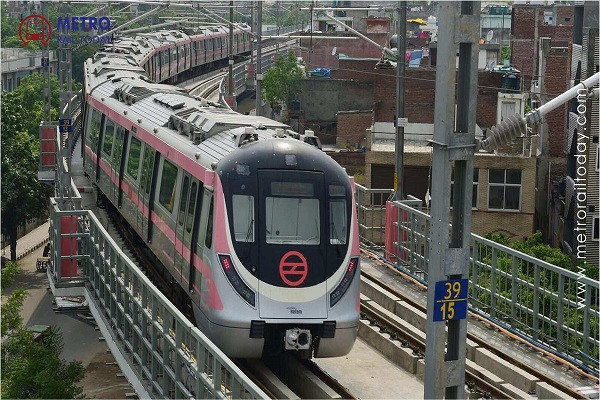 DMRC to introduce Driverless Trains on Delhi Metro Phase 4 Corridors
DMRC to introduce Driverless Trains on Delhi Metro Phase 4 Corridors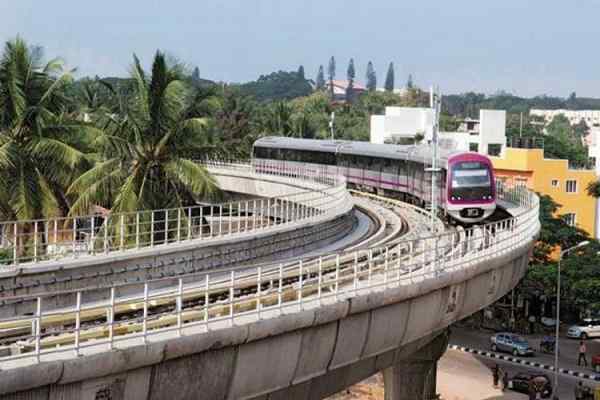 Karnataka proposes Centre of Excellence for Railways and Mobility Innovation
Karnataka proposes Centre of Excellence for Railways and Mobility Innovation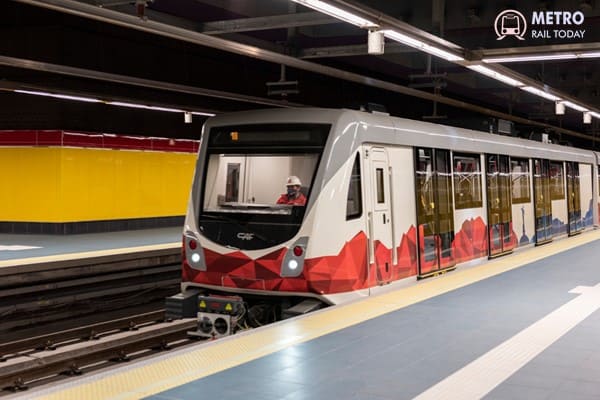 Egypt and Japan approve Greater Cairo Metro Line 4 Project
Egypt and Japan approve Greater Cairo Metro Line 4 Project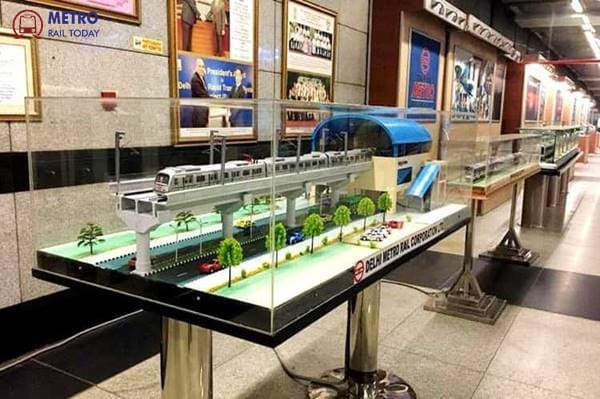 Metro Rail Today continues its legacy as Official Media Partner for 18th Urban Mobility India 2025
Metro Rail Today continues its legacy as Official Media Partner for 18th Urban Mobility India 2025
First U-Girder installed on JLN Stadium–Infopark Corridor of Kochi Metro Phase 2

Kochi, India (Metro Rail Today): The much-awaited Phase II of Kochi Metro has entered a crucial stage with the successful installation of its first U-girder on the JLN Stadium–Infopark corridor on Friday, marking a major milestone in the project’s construction timeline.
The girder, weighing 170 tonnes, was fabricated at the Kochi Metro Rail Limited (KMRL) casting yard in Kalamassery and installed between pillars 284 and 285 along the Infopark Expressway. It was transported to the site on a multi-axle trailer and lifted using heavy-duty cranes, reflecting the precision and engineering expertise behind the metro’s expansion.
“The placing of girders over the pillars along the Infopark Expressway will continue in the coming days. Once the girders are in place over a one-km stretch, we will start work on the track,” a KMRL spokesperson said.
Construction Progress on Track
The 11.2-km Pink Line under Kochi Metro’s Phase II extends from JLN Stadium in Kaloor to Infopark in Kakkanad, one of the city’s fastest-growing IT and residential hubs.
KMRL aims to open the first reach up to Padamugal by June 30, 2026, while the entire corridor is expected to be operational by December 31, 2026. The first stretch will include five new stations — Palarivattom Junction, Palarivattom Bypass, Chembumukku, Vazhakkala, and Padamugal — in addition to JLN Stadium.
So far, 65 pillars have been completed across SEZ, Alinchuvadu, and Vazhakkala. The construction of 1,135 piles — including 875 for the viaduct and 260 for the stations — has also been completed.
Work on pier caps and girders is progressing steadily at the Kalamassery casting yard, where 100 U-girders, 72 A-girders, and 100 pier caps have been completed. The tendering process for track construction is also underway in parallel.
Smart Engineering and Optimized Alignment
The Phase II design demonstrates innovative alignment planning to reduce cost and complexity. Two new tracks (‘up’ and ‘down’) will initially utilize space available on either side of the existing Aluva corridor.
The Infopark-bound up line will pass above the existing Aluva line near Kurishupally at Palarivattom, while the returning down line will run parallel on the opposite side — eliminating the need for additional overpasses and ensuring smoother construction.
The foundation stone for Phase II was laid in September 2022, and while the initial deadline was 2025, the timeline has now been extended to December 2026 to ensure quality execution and minimal disruption to the city’s arterial routes.
Mrs. Mamta Shah, MD & CEO, Urban Infra Group, lauded KMRL’s steady progress and its strategic alignment choices:
“Kochi Metro’s Phase II expansion demonstrates India’s growing engineering maturity in metro infrastructure. The corridor linking Kaloor to Infopark is a lifeline for the city’s digital economy, connecting talent with technology hubs while easing congestion. Such well-planned, sustainable metro projects play a pivotal role in achieving our national goals under Viksit Bharat 2047, where urban mobility and economic growth move hand in hand.”
Once operational, the Pink Line will provide seamless connectivity to Kakkanad’s Infopark, home to thousands of IT professionals, significantly reducing travel time and road congestion.
With the ongoing pace of work and meticulous planning, Kochi Metro continues to set benchmarks for sustainable and people-centric transport development in India.




